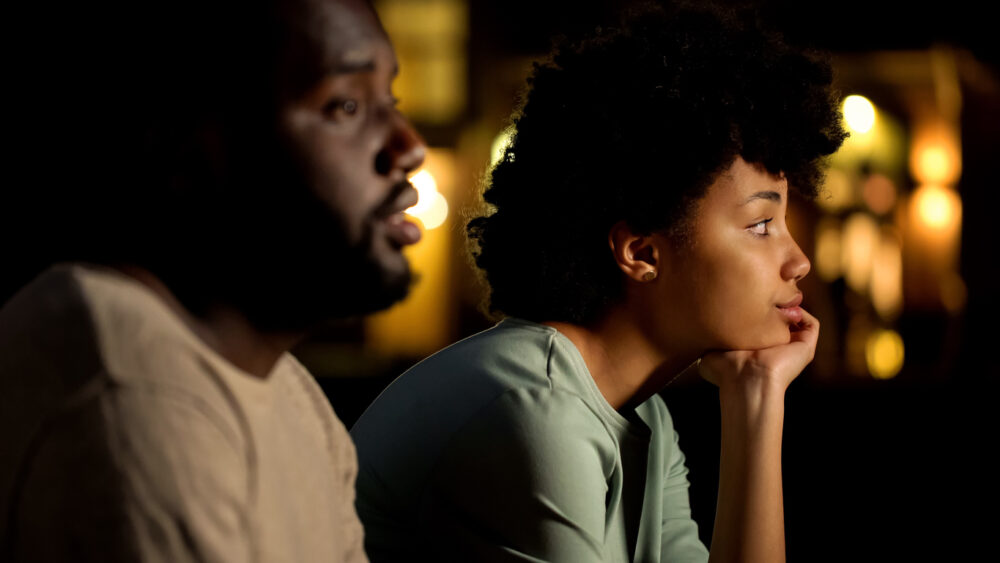Constant swiping is rewiring how we see love, connection, and our own worth.

It starts out feeling like a game—quick, exciting, full of potential. But after a few dozen matches, unread messages, ghostings, and awkward meetups, the dopamine rush fades and the emotional fatigue sets in. Dating apps promised to bring people closer, but more often than not, they leave users feeling lonelier than ever. They’ve changed how we date, but they’ve also changed how we value ourselves and each other.
Modern romance has become a scrollable buffet of potential partners, making it easier to be picky and harder to connect. People ghost with zero explanation. Swipes replace conversations. Algorithms judge compatibility better than instincts. It’s a marketplace mindset, and it’s messing with how people build relationships. What feels like progress on the surface is actually sabotaging connection under the hood. These 11 points break down exactly how dating apps are quietly wrecking your love life—and why it’s not just bad for dating, but bad for your soul.
1. You’re not dating people—you’re judging profiles.

Apps are designed to turn people into products. You’re presented with a handful of curated photos, a few lines of text, and a list of filtered stats—height, hobbies, maybe politics. Then you make a decision in seconds: yes or no. It feels efficient, but it’s deeply dehumanizing, according to Greg Rosalsky at NPR.
That fast judgment skips over the nuance and mystery of meeting someone organically. You never see their mannerisms, hear their laugh, or experience the weird chemistry that doesn’t translate to a profile. It trains your brain to expect instant attraction and forget the slower, sometimes clumsy ways people fall in love in real life. The result? A shallow dating experience that doesn’t give anyone a fair shot.
2. You think someone better is always one swipe away.

Dating apps give the illusion of endless options. Every time a match fizzles out—or you get bored—you can open the app and swipe again. That sounds empowering, but it creates a cycle of dissatisfaction. It convinces you that there’s always someone more attractive, more interesting, or more “perfect” just waiting on the next swipe, as reported by Marie Le Conte at New Statesman.
That constant chase messes with your ability to settle into anything meaningful. Real relationships require patience and commitment, but if you’re always hunting for a better option, you never give what you have a real chance. You start to believe love should be convenient, effortless, and always new. And that belief is a surefire way to stay single and unfulfilled.
3. Ghosting has become a social norm.

There was a time when disappearing on someone mid-conversation was unthinkable. Now it’s so common it barely raises an eyebrow. People vanish without a word because the digital format makes it easy—and because they don’t feel a real connection in the first place, as stated by Nancy Jo Sales at The Guardian.
This ghosting culture chips away at empathy. It teaches people that ignoring others is acceptable, even expected. That emotional disconnect not only hurts the ghosted, but it also erodes the ghoster’s own ability to communicate and navigate conflict. Over time, it makes everyone worse at handling hard conversations—and way too comfortable walking away without closure.
4. Your self-worth becomes tied to an algorithm.

Every match, message, and like feels like a small dose of validation. But when those notifications slow down, or you get passed over, it’s hard not to take it personally. Apps gamify attraction, making you feel like your desirability is something to be scored.
That kind of feedback loop rewires how you see yourself. You might start altering your photos, tweaking your bio, or hiding your true self to get better “results.” But the more you play the game, the less authentic you become. And when people like the version you’ve crafted—not the real you—it doesn’t feel good anyway. It just deepens the disconnect.
5. Real conversation becomes a lost art.

Swiping is easy. Starting a conversation that goes beyond “hey” is much harder. Because apps focus on first impressions, people often put less effort into actually getting to know each other. Messages fizzle out, turn boring fast, or stall completely. It’s rare to find someone who really engages.
That lack of depth makes every match feel replaceable. It teaches you to expect instant chemistry and instant conversation flow, when real relationships often start awkwardly and build slowly. The art of listening, asking good questions, and showing vulnerability starts to fade—and that hurts your chances even off the apps.
6. You’re dating for entertainment, not connection.

Many people open dating apps out of boredom, not loneliness. Swiping becomes a way to kill time while standing in line or watching TV. It’s something to do—not a sincere attempt to find someone. That habit blurs the line between dating and distraction.
When dating becomes a game, your intentions shift. You might match with people you don’t really like, just for fun. You might chat without any plans to meet. You might even start seeing dating as a novelty rather than a pursuit of something meaningful. It’s not that you’re trying to waste time—it’s just what the apps are designed to do.
7. First dates feel like interviews.

With so many people meeting online, the pressure on first dates has skyrocketed. You often go in with limited information and high expectations, hoping for instant chemistry to justify the match. That turns first dates into awkward auditions instead of organic meetings.
People analyze each other’s words, clothing, and vibe for signs of “potential.” Instead of letting things unfold naturally, they rush to decide if this is “the one.” That rush kills any chance of genuine connection. It makes dating feel like a job hunt, not a shared human experience. No one wants to feel like they’re constantly being evaluated.
8. Everyone’s replaceable—so no one’s special.

The fast-paced nature of app dating makes it easy to move on. If someone says something slightly off or doesn’t respond quickly enough, you can swipe again and find someone new. That abundance mindset creates a culture where people stop working through small issues.
Instead of fixing, people replace. Instead of understanding, they discard. This trend makes everyone feel disposable. It lowers emotional investment and increases flakiness. People stop valuing what they have because they believe better is always out there—and that belief kills intimacy before it even starts.
9. You’re chasing a fantasy, not a person.

Dating apps give you endless filters and preferences—age, body type, distance, hobbies, politics. That makes it easy to create a dream partner checklist and reject anyone who doesn’t fit it exactly. But love doesn’t always come in the package you expect.
Focusing too much on the fantasy keeps you from noticing the real connection that might exist with someone slightly outside your criteria. The obsession with finding your “perfect match” makes you overlook people who could actually make you happy. It turns dating into a shopping spree, where you’re never quite satisfied with what’s in your cart.
10. You lose faith in real-world connection.

After months or years on dating apps, it’s easy to forget what dating used to look like. Meeting someone at a party, a coffee shop, or through friends starts to feel unlikely or even unrealistic. That belief traps you in the app world, even if it’s making you miserable.
The truth is, some of the best relationships start offline. But when you’re stuck in a loop of swiping and small talk, you stop noticing the people around you. You begin to rely on algorithms instead of instincts. That disconnect makes you feel powerless, even though real connection often starts with a simple smile and a little courage.
11. It numbs your hope—and your heart.

Using dating apps long enough can wear you down. Rejections pile up. Good matches turn cold. Promising chats go nowhere. Over time, that rollercoaster of highs and lows chips away at your optimism. You start to expect disappointment. You brace yourself for the worst.
That emotional numbness makes it harder to fully show up in new connections. You start protecting yourself too much. You downplay your feelings. You get tired of trying. And that’s the cruelest part—dating apps don’t just waste your time, they wear down your willingness to keep believing in love.
